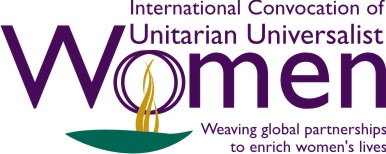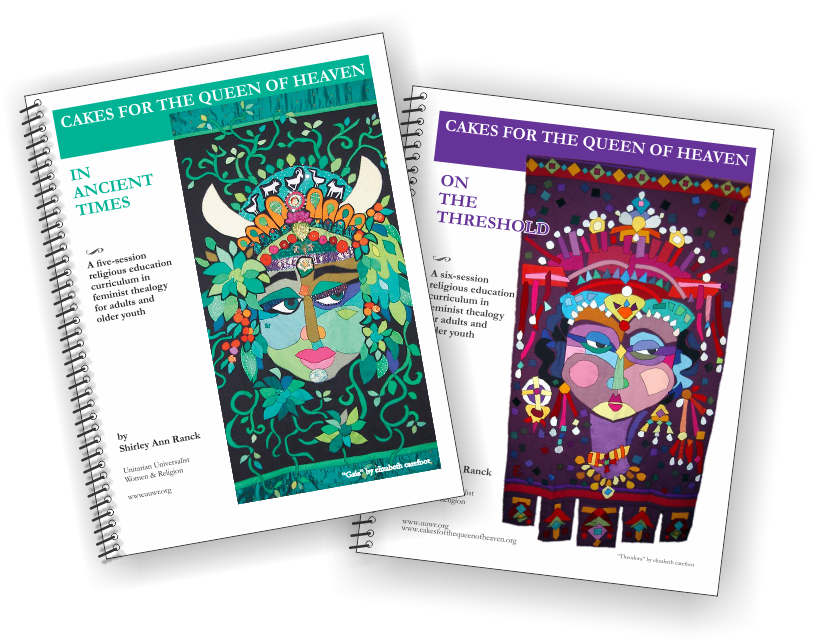
The dedicated group of planners for the International Convocation of U*U Women1 is focused on these questions: what are the goals of the Convocation, what outcomes do we hope for, and what do we want to accomplish? The answers depend on women attending from around the world, speakers and planners staying attuned to the issues, and our fundraising efforts coming together to ensure diverse representation at the Convocation.
A convocation is different from a conference. “Convocation” comes from the Latin, convocare, meaning to call forth or summon together, and vox, or voice. Unlike a conference where the agenda is known, a convocation calls forth the collective voice.
We all ask, “What can I do?” Can we have a significant impact on the world? In this age, we can fly the globe, Skype friends 8,000 miles away or send a text message by clicking a button, and yet feel powerless in the face of world issues and vast institutions that seem to run our lives. At our Convocation, dedicated individuals will fly off to connect us with their visions, shape our world, and inspire us.
New programs make use of telecommunication and the internet to allow individuals to have a direct impact. Kiva is one such internet-based tool that allows individuals to lend as little as $25 which is channeled to individuals through local, established micro finance banks which administer the loans. Lenders have a direct impact upon individual lives by applying techniques developed by Mohammed Yunus, winner of the 2006 Nobel Peace Prize for his groundbreaking work in micro-lending through the Grameen Bank.
Women constitute 70% of the world population in extreme poverty, defined by the United Nations as living on less than $1 a day. Women produce 75-90% of global food crops, though seldom controlling land or resources.2 Women around the world lack basic human rights when they cannot hold a job, own land, go to school, or vote. Without these rights they and their children are at risk. The astounding rate at which women die each year from relatively simple and treatable complications from childbirth is a rallying cry. “In some African countries, a woman has more than a 1-in-10 lifetime risk of dying in childbirth. If men were dying at such a rate for fathering children, the G-8 would be holding emergency summits” (Nicholas D. Kristof).3
Those attending the Convocation will learn the positive message of the Millennium Development Goals crafted at the turn of this century when apocalyptic messages were everywhere. This assembly, the largest of world leaders ever to convene, imparted a message of hope. They determined that eliminating extreme poverty was an achievable goal for the world community. Convocation planners are hopeful that new friendships and partnerships will grow, offering ways for our respective communities to work together. There are already successful programs underway in which U*U communities and congregations work to enrich women’s lives. By highlighting the elements of their success, we can extend this work throughout our movement.
The Convocation recently received its third grant from the UU Funding Panel for the purpose of building an online community for the Convocation, including a database of model programs and partnerships. This will allow those unable to afford to travel to the Convocation to participate on the web. Papers and other materials from the Convocation will be published. This online community will extend our Global Sisters Groups, small group meetings planned for the Convocation, to be available to all. This database will highlight model U*U programs and partnerships around the world. What do we mean by successful programs and partnerships? This is part of what we hope to learn through research now being conducted with the help of Rice University’s Center for the Study of Women, Gender and Sexuality.
An earlier grant from the UU Funding Panel was used to develop the Global Literacy Project (GLP), a program helping U.S. congregations prepare for the Convocation. The GLP focuses on conditions in America, as well as abroad, and asks participants to examine their own culture while striving to learn about others.
 I am the Administrator of Southwest UU Women, a nonprofit women’s organization in the Southwest UU Conference. This year we will celebrate our 22nd annual gathering. Recently I learned that the Northeast District women’s group has just celebrated its 100th bi-annual gathering. UU women are out there, meeting in district organizations across the country, through the UU Women’s Federation, in UU Women and Religion, in Women’s Alliances and in small covenant groups in our congregations. We need to work together to address the issues facing women. We need to reach out to help our sisters whose basic human rights are being violated. And we need to act now!
I am the Administrator of Southwest UU Women, a nonprofit women’s organization in the Southwest UU Conference. This year we will celebrate our 22nd annual gathering. Recently I learned that the Northeast District women’s group has just celebrated its 100th bi-annual gathering. UU women are out there, meeting in district organizations across the country, through the UU Women’s Federation, in UU Women and Religion, in Women’s Alliances and in small covenant groups in our congregations. We need to work together to address the issues facing women. We need to reach out to help our sisters whose basic human rights are being violated. And we need to act now!
Finally, we hope to take action as a Convocation. This will be the first-ever international gathering of U*U women. The 2005 survey of UU congregations indicated that the majority (60-80%) of a congregation’s active participants are female.4 What a lot of woman power! If we work together is there anything we could not do? Reshaping our world to unleash the power of women to heal the world and help their families is not only a laudable goal but I believe an achievable goal for this Convocation.
I look forward to seeing you in Houston!
- U*U is the international symbol used to designate the half million Unitarians, Universalists and Unitarian Universalists located around the world in 22 countries.
- Global Issues That Affect Everyone (http://www.globalissues.org/HumanRights/WomensRights.asp)
- The New York Times, June 12, 2008.
- Faith Communities Today, UUA FACT, Survey 2005, Report 2006, page 30.



